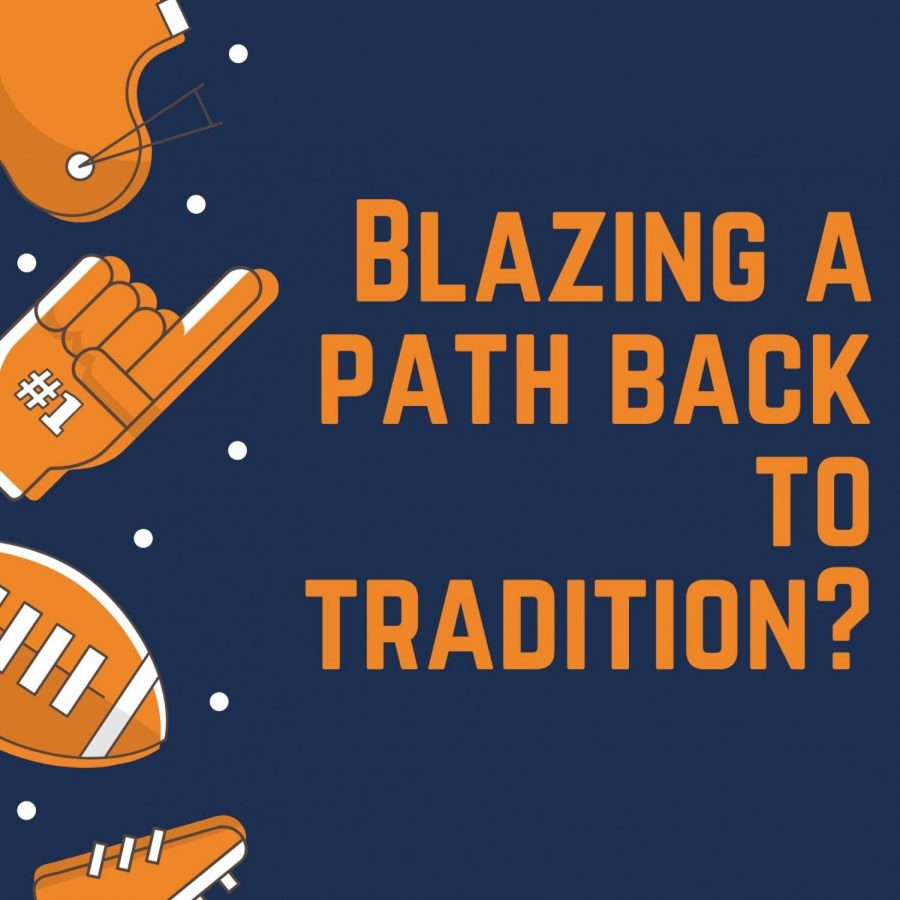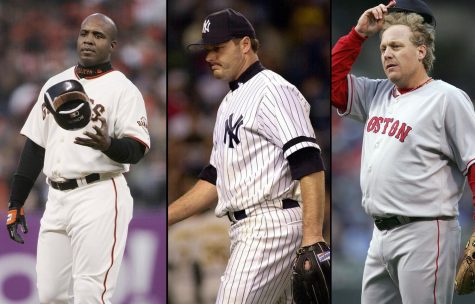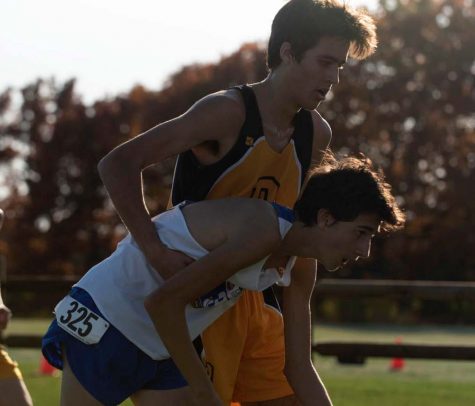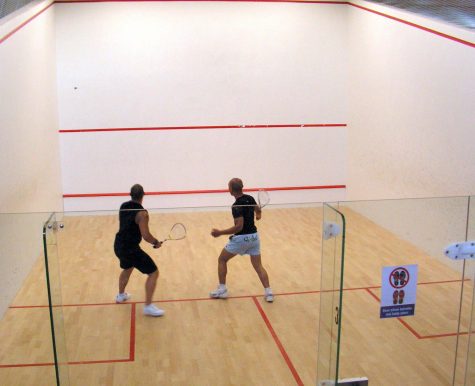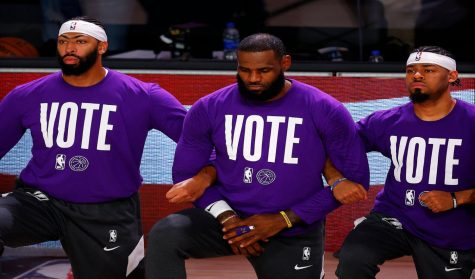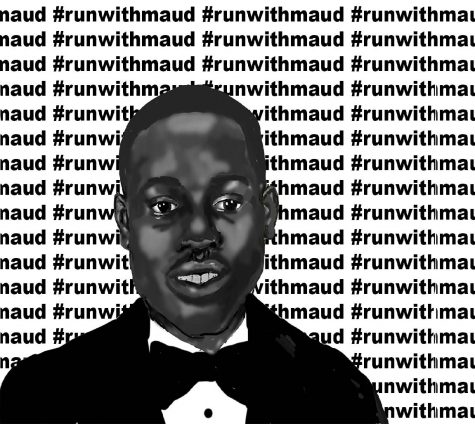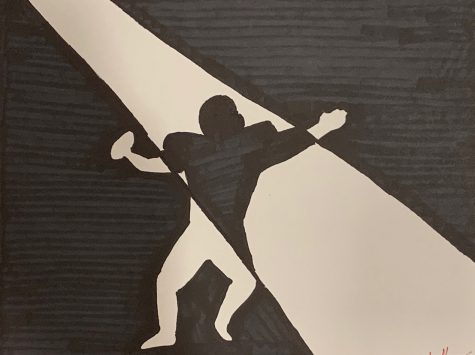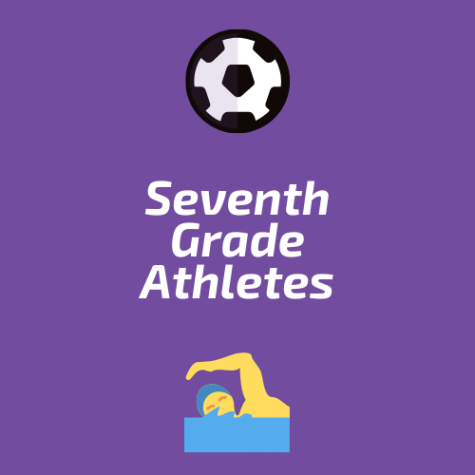Blazing a Path Back to Tradition?
September 28, 2020
A star basketball player’s surprising commitment leaves some to wonder if he will become a trendsetter.
This past July, elite high school basketball recruit Makur Maker committed to Howard University, a historically Black university. Makur chose Howard over many predominantly white, powerhouse basketball programs such as Kentucky, UCLA, and Memphis, a very uncommon occurrence. In his commitment announcement, Maker stated that, “I need to make the HBCU movement real so that others will follow.” Many wonder if other elite Black student-athletes will choose HBCUs, and I asked student athletes at John Burroughs School how Maker has influenced their recruitment process.
Before school integration, the best Black athletes in the country played at HBCUs. Post-integration, predominantly white institutions (PWIs) began aggressively recruiting Black athletes, drawing them away from HBCUs. Since then, the financial gap between HBCU and PWI athletics has widened significantly. Today, NCAA sports bring in billions of dollars a year on the backs of Black athletes attending PWIs. Black men make up only 2.4% of the total student population of schools in the Power 5 athletic conferences, but make up 55% of the football players and 56% of the basketball players. In 2017, The University of Alabama’s athletic program took in $174 million, and in the same year the top earning HBCU athletic program made under $18 million dollars.
An increase in top student-athletes committing to HBCUs would be more than a symbolic example of Black empowerment. 80% of Black judges, 50% of Black lawyers, 50% of Black doctors, 40% of Black engineers, 40% of Black members of congress, and 13% of Black CEOs in America graduate from HBCUs and, this past summer, Senator Kamala Harris, who attended Howard, became the first HBCU graduate to be put on a major political party’s ticket when she became the Democratic nominee for Vice President. If HBCUs could attract more top tier athletes, then their athletic programs could see greater profits, which could be funneled into a large percentage of the Black professional class. This change, as a whole, would not only affect athletics, but could eventually lead to significant change in the economic standing of African Americans. If HBCUs made even half of what Power 5 schools do, it could have an immense impact on the Black community as a whole.
When asked if he ever considered attending an HBCU, highly recruited football star Tyson Ford (‘22) replied, “I want to go somewhere that maximizes my chances of playing at the next level, and an HBCU would not be what’s best for me.” However, Ford did note the importance of elite athletes attending HBCUs. “Of course, I feel like, at some point, Black athletes will be able to change the stigma of HBCUs in sports and will be able to turn the whole system around.” I asked him when could be the time to “turn the system around.” He answered, “I believe that now is a perfect time, but it will take a group of high-profile people… frankly, not a lot of people are willing to sacrifice for a movement.”
Caleb Merritt (‘22), another top football recruit, also weighed in. When asked about HBCUs, Merritt stated, “Yea, I’ve been thinking a lot about them,” and that he could “for sure” see himself attending one. “I have always thought of HBCUs to be the Black Ivy League. It’s for sure something every athlete of color should consider!” When asked if he could foresee a movement of top tier Black athletes attending HBCUs, he said, “As much as I would like for that to happen, I don’t know how many athletes would do it. It would be very difficult… but I think a movement like this would be groundbreaking for the Black community as a whole. I believe that bringing attention to HBCUs is important for us going forward.”
Ford and Merritt both agreed that a rise in HBCU athletics would be huge for the Black community, but they recognize that it would also be extremely difficult to pull off. Makur Maker’s commitment to Howard University has the potential to make him a pioneer for Black empowerment in sports. However, the question remains if Black student-athletes will follow in his footsteps, and create the movement Maker is trying to create.
